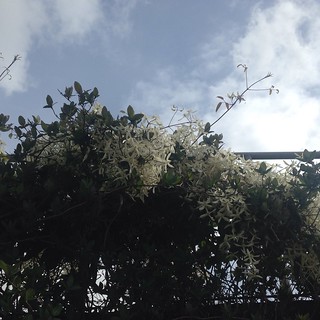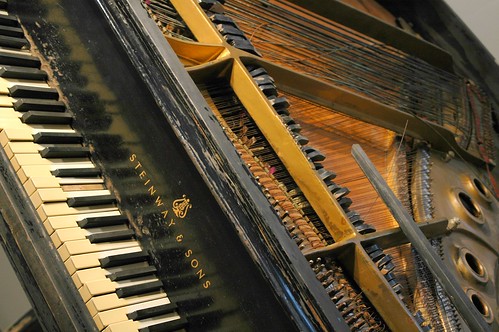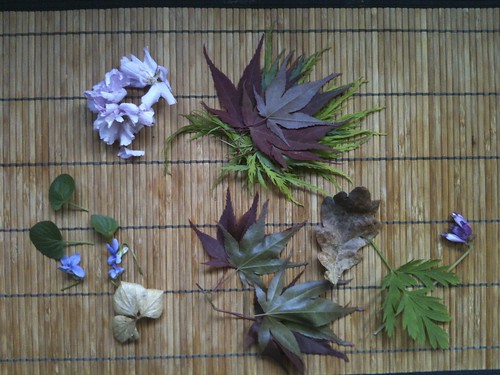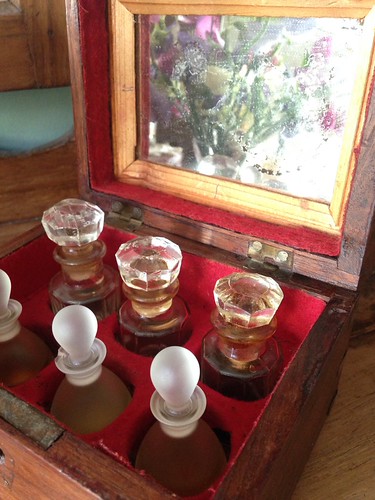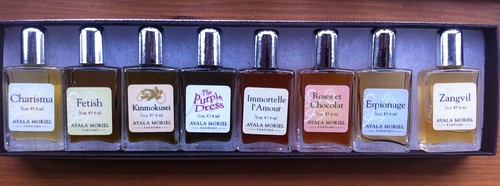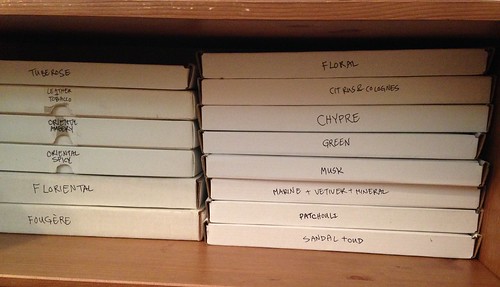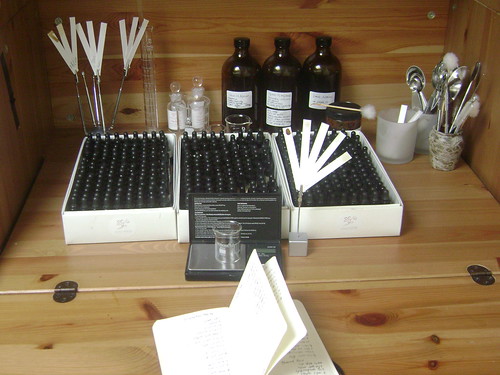Farewells
This past year has been mostly about bidding farewells. Change is inevitable and it brings with it, simultaneously, much excitement for a better future with more possibilities; and an increasing anxiety about the unknown. It is also has a destructive force as it puts strains on relationships and friendships, and also requires letting go of much of the past and erasing possible future chapters in one's life, so to speak.
We've spent 18 years in Canada, where we lived (me and my daughter) in Vancouver's West End. As my last year here approached, with the commencement of each season I was thinking how this would be the last time we will experience it here. It was bittersweet, as if seeing my daughter's entire childhood in the West End and bidding farewell to it: all the hardships of raising her alone in a strange, faraway country, of the diagnosis process, the different people that helped us along the way through all the phases, her daycares, schools, after school programs, summer camps... So many good people along the way that were like our family for the time they've accompanied us - and then, usually, moved on with their own lives. Looking back, I really feel that I've given my daughter an amazing childhood in this part of the world, and I feel more than a little guilty for plucking her out of her familiar environment and transplanting her into my own...
The last Thanksgiving and Halloween were especially emotional as they are also around the same time as my daughter's birthday and a very special time of the year for her. But by the time the winter holidays rolled around I was beginning to see the benefits of my decision and being in transition phase. The things that usually bother me about this season - the isolation, the darkness and the sense that I don't really belong here - did not matter so much because I knew I will be leaving soon. So instead of being sad about feeling left out, I felt relief in knowing that I can engage in whatever social gatherings that I enjoy and that I will have plenty of family obligations soon enough to make up for all those years of being away.
But of course, just when I thought my path was already carved out for me and I was set with my nose toward Jerusalem, surprises and distractions started piling up along the way. I spent the past year helping a close friend recover from multiple addictions (including methamphetamine, whose recovery from involves all kinds of fun stuff such as hallucinations, paranoia and emotional bursts of all types); and then I got involved with helping a family of refugees to settle in Canada, which made those previous troubles seem like a piece of cake. And all along the way my own daughter began panicking about her approaching graduation and this being her last year in school and all the changes that we've been agonizing over, discussing and preparing for mentally for the past year.
For those reasons, packing my stuff now and leaving feels like too much for me right this moment. But I must do it. Vancouver has become a ridiculously expensive city and many of my friends are leaving for similar reasons. It has become an increasingly isolated and cold city, even more than it was before (and it was never friendly to begin with). The sense of alienation is piercing especially when big life events happen - good or bad. There is no sense of community and no matter how much people care about you - if you don't have family (of origin or one that you've built on your own, i.e. a husband or a significant other of some other title) - you're on your own in those dark and bright moments with no one to share life's most extraordinary aspects. It's not like that in other parts of Canada (including British Columbia) that I've visited, so I'm not ditching the entire country. I'm just saying Vancouver has become an increasingly hostile city towards the people who live in it and try to contribute something to its culture and community. It's quite astonishing really, that I was able to survive here - and at times even thrive - as long as I did.
So either way there is going to be a major relocation coming up (FYI for me, a routine-loving artist surrounded by millions of fragrant bottles and vials, who likes to dig my roots deep and stay in places for pretty long, even moving to a different neighbourhood in the same city is a big deal). Aside from my very nomadic early beginnings (a side effect of being born to a very bohemian mother), I spent pretty much half of my life in my home village and half of it in Vancouver. And as versatile and adaptable as I am, I don't like change and only take it up when I am absolutely forced to do so. As a dual-citizen, I've been always blessed with too many possibilities and I'm now suffering the consequences, so to speak.
But even a rather dark and personal post like this should end on a positive note: transitions aside, once that hurdles are past me (packing hassles, establishing my exact moving date, renovations on the other side of the globe, etc.) I'm very much looking forward to the next chapter of my life. There are going to be many more possibilities for me personally and also for my business, and particularly for my perfumery school. I'll have my own fragrant garden and and dreaming about dabbling deeper into extractions, distillation and tincturing of all those fragrant perfumery plants that are for the most part native to the mediterranean region. I'm looking forward to a simpler life, more community and family oriented, more connected to real people in real life and less distracted by social media and technology (for better or for worse - my home village is off the grid). Come visit me there and you'll see for yourself!
We've spent 18 years in Canada, where we lived (me and my daughter) in Vancouver's West End. As my last year here approached, with the commencement of each season I was thinking how this would be the last time we will experience it here. It was bittersweet, as if seeing my daughter's entire childhood in the West End and bidding farewell to it: all the hardships of raising her alone in a strange, faraway country, of the diagnosis process, the different people that helped us along the way through all the phases, her daycares, schools, after school programs, summer camps... So many good people along the way that were like our family for the time they've accompanied us - and then, usually, moved on with their own lives. Looking back, I really feel that I've given my daughter an amazing childhood in this part of the world, and I feel more than a little guilty for plucking her out of her familiar environment and transplanting her into my own...
The last Thanksgiving and Halloween were especially emotional as they are also around the same time as my daughter's birthday and a very special time of the year for her. But by the time the winter holidays rolled around I was beginning to see the benefits of my decision and being in transition phase. The things that usually bother me about this season - the isolation, the darkness and the sense that I don't really belong here - did not matter so much because I knew I will be leaving soon. So instead of being sad about feeling left out, I felt relief in knowing that I can engage in whatever social gatherings that I enjoy and that I will have plenty of family obligations soon enough to make up for all those years of being away.
But of course, just when I thought my path was already carved out for me and I was set with my nose toward Jerusalem, surprises and distractions started piling up along the way. I spent the past year helping a close friend recover from multiple addictions (including methamphetamine, whose recovery from involves all kinds of fun stuff such as hallucinations, paranoia and emotional bursts of all types); and then I got involved with helping a family of refugees to settle in Canada, which made those previous troubles seem like a piece of cake. And all along the way my own daughter began panicking about her approaching graduation and this being her last year in school and all the changes that we've been agonizing over, discussing and preparing for mentally for the past year.
For those reasons, packing my stuff now and leaving feels like too much for me right this moment. But I must do it. Vancouver has become a ridiculously expensive city and many of my friends are leaving for similar reasons. It has become an increasingly isolated and cold city, even more than it was before (and it was never friendly to begin with). The sense of alienation is piercing especially when big life events happen - good or bad. There is no sense of community and no matter how much people care about you - if you don't have family (of origin or one that you've built on your own, i.e. a husband or a significant other of some other title) - you're on your own in those dark and bright moments with no one to share life's most extraordinary aspects. It's not like that in other parts of Canada (including British Columbia) that I've visited, so I'm not ditching the entire country. I'm just saying Vancouver has become an increasingly hostile city towards the people who live in it and try to contribute something to its culture and community. It's quite astonishing really, that I was able to survive here - and at times even thrive - as long as I did.
So either way there is going to be a major relocation coming up (FYI for me, a routine-loving artist surrounded by millions of fragrant bottles and vials, who likes to dig my roots deep and stay in places for pretty long, even moving to a different neighbourhood in the same city is a big deal). Aside from my very nomadic early beginnings (a side effect of being born to a very bohemian mother), I spent pretty much half of my life in my home village and half of it in Vancouver. And as versatile and adaptable as I am, I don't like change and only take it up when I am absolutely forced to do so. As a dual-citizen, I've been always blessed with too many possibilities and I'm now suffering the consequences, so to speak.
But even a rather dark and personal post like this should end on a positive note: transitions aside, once that hurdles are past me (packing hassles, establishing my exact moving date, renovations on the other side of the globe, etc.) I'm very much looking forward to the next chapter of my life. There are going to be many more possibilities for me personally and also for my business, and particularly for my perfumery school. I'll have my own fragrant garden and and dreaming about dabbling deeper into extractions, distillation and tincturing of all those fragrant perfumery plants that are for the most part native to the mediterranean region. I'm looking forward to a simpler life, more community and family oriented, more connected to real people in real life and less distracted by social media and technology (for better or for worse - my home village is off the grid). Come visit me there and you'll see for yourself!



